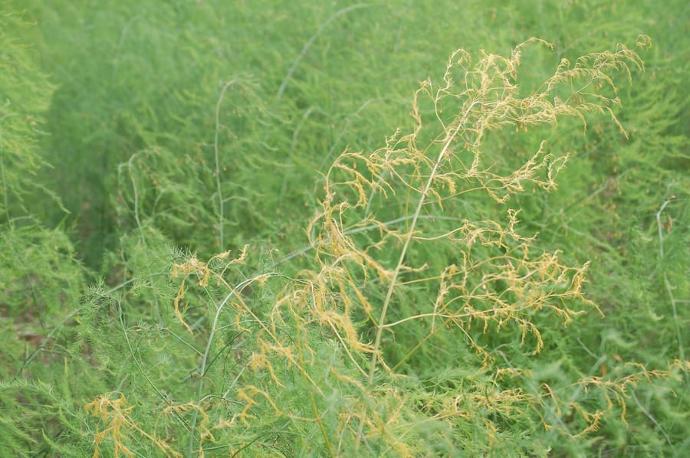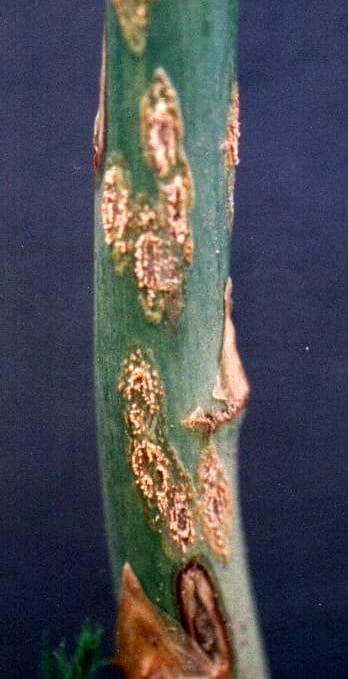Asparagus Mayura Plant
Asparagus mayura, a lush, bushy fern-like ornamental plant, thrives in partial sunlight with minimal care and adds beauty and air-purifying benefits to indoor and outdoor spaces.
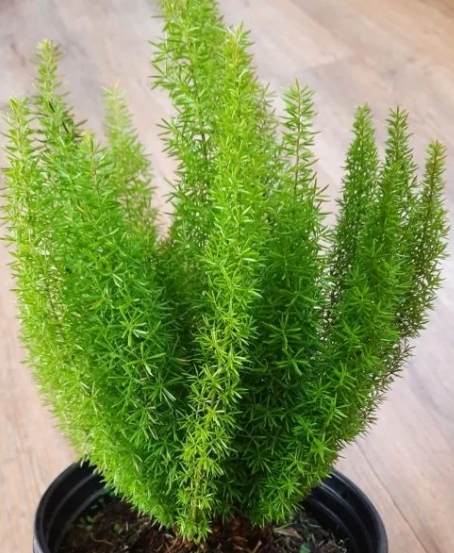
Habit
Perennial
Height
1-2 m
Growth
Fast
Soil
Well Drained, sandy-loam
Shade
Partial shade to Full Sun
Moisture
Moist
Edible
Yes [Young Shoots]
Medicinal
No
Origin
India, Sri Lanka
Climatic Condition
Tropical
Temperature (°)
20-30°C
Humidity (%)
70-90%
Potting media
Garden soil
Fertilizers
Organic compost
Watering
Regular watering; prefers moist conditions
Plant Weight
1-2 kg
Flowering Time
Summer
Soil Ph level
6.0 - 7.5
Water Ph level
6.0 - 7.0
Soil EC
Medium
Yield Per Plant
Medicinal use
NPK ratio
10:10:10
life Span
Perennial
Health Benefits
Used in traditional medicine; supports reproductive health.
Suggested Grow Media or Potting Mix ?
50% loamy soil, 30% compost, 20% sand
Suggested Fertigation/Fertilizers
Fertilize every 2 weeks with a balanced fertilizer.
Common Diseases and Remedies
Asparagus rust, fusarium crown and root rot.
Orange to brown, powdery pustules on spears and ferns, weakened plants. Wilting, yellowing and decline of ferns, often starting from the crown.
Remove infected ferns, improve soil drainage, proper plant depth, and spacing.
HEALTH BENEFITS
1. Rich in Nutrients
- High in vitamins A, C, E, and K
- Good source of folate (B9), iron, and potassium
2. Supports Digestion
- Contains dietary fiber, promoting gut health
- Has prebiotics, which support good gut bacteria
3. Antioxidant Properties
- Rich in flavonoids and polyphenols, which help reduce inflammation
- Contains glutathione, a powerful antioxidant that detoxifies the body
4. Supports Heart Health
- Potassium helps regulate blood pressure
- Fiber reduces cholesterol levels
5. May Support Blood Sugar Control
- Contains compounds that improve insulin sensitivity
6. Boosts Immunity
- Vitamin C and antioxidants help strengthen the immune system
7. Good for Brain Health
- High folate content helps reduce cognitive decline
- Antioxidants may protect brain cells from damage
What Is An Asparags Mayura?
Asparagus Mayura is a variety of asparagus, a perennial flowering plant belonging to the Asparagus genus. Mayura asparagus, known for its dense, soft and delicious taste, is the favorite choice of asparagus lovers. It usually grows in well-drained soil and needs full sun to partial shade. Mayura asparagus is usually harvested in spring and early summer when asparagus is at its peak.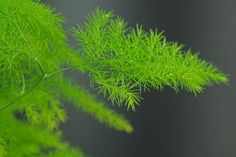
What Are The Different Types Of Asparagus plants?
1. Mary Washington:
Many varieties are famous for their high benefits and immunity.
2. Jersey Cavalier:
A hybrid variety with large and delicate spears and good resistance to diseases.
3. Purple Passion:
A special variety with purple spears that turn green when ripe.
4. UC 157 F1:
Cultivation area widely known for its uniform spears and high yields.
5. Gijnlim:
Dutch variety with thick and soft spears and good resistance to diseases.
6. Apollo:
British variety with good yield and good disease resistance.
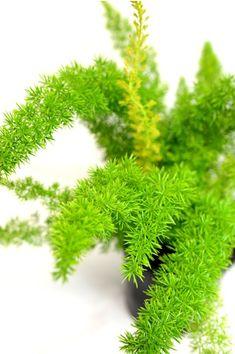
How To Care For Asparagus Mayura?
Location
Asparagus Mayura plants, like other asparagus varieties, thrive in well-drained soil and need full sun to partial shade. Since they are sensitive to frost and cold, they generally grow in regions with hot climates. Asparagus Mayura plants also need a lot of space to spread because they can get very large. They are usually planted in rows in the garden or field, with each plant several meters apart to ensure good growth and air circulation.
Sunlight
Asparagus Mayura plants, like other asparagus varieties, need full sun or partial shade. This means they need at least 6 to 8 hours of direct sunlight per day to grow and produce healthy spears. If you are growing Asparagus Mayura in an area with hot summers, provide some shade in the afternoons to help protect the plant from overheating and sunburn. However, if you are growing Asparagus Mayura in a cold climate, adequate sunlight is essential for growth and development.
Soil
Asparagus Mayura plants, like other asparagus varieties, prefer well-drained soils rich in organic matter. The ideal soil pH for Asparagus Mayura is between 6.5 and 7.5. It is important to avoid heavy clay soils as these can cause water leaching and root rot. Sandy or loamy soils are best for Asparagus Mayura because they provide good drainage and allow the roots to go deep into the soil. If your soil is not suitable for Mayura asparagus, you can amend it with organic matter such as compost or well-rotted manure to improve its texture and fertility.
Hydration
Asparagus Mayura plants, like other asparagus varieties, require constant moisture to thrive. However, they are sensitive to excess water, so it is important to maintain balance. Asparagus Mayura plants should be watered deeply and clearly, but not too much. The soil should be kept evenly moist but not waterlogged. It is best to water your Asparagus Mayura plants in the morning so that the leaves have time to dry before evening, which helps prevent diseases. During hot weather or drought, you may need to water more frequently to keep the soil moist.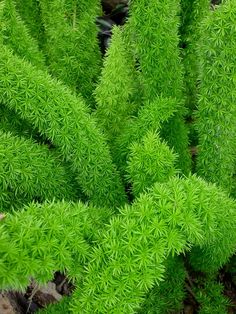
Nourishment
Asparagus Mayura plants, like other asparagus varieties, need regular fertilization to grow and produce healthy, delicious asparagus. Asparagus mayura plants are heavy eaters, so they need a lot of nutrients to thrive. It is best to fertilize asparagus in the spring when the spears begin to grow. Use a balanced fertilizer that contains equal amounts of nitrogen, phosphorus and potassium, such as a 10-10-10 or 12-12-12 mix. Apply the fertilizer according to the manufacturer's instructions and remember to water thoroughly. Asparagus Mayura plants also benefit from a layer of organic mulch, such as compost or rotted manure, around the base of the plant. This helps retain moisture, reduce weeds, and add nutrients to the soil as it breaks down.
Issues
1. WEDGE CONTROL*: Asparagus Mayura plants are susceptible to competition from weeds, so it is important to keep the area where the plant is located free of weeds. Mulching can help reduce weeds and retain soil moisture.
2. Pests*: Asparagus Mayura plants can be affected by pests such as asparagus beetles, aphids and slugs. Regular plant inspections and timely treatment with insecticides or other pest control methods can help control pests.
3. Diseases*: Asparagus Mayura plants suffer from diseases such as asparagus rust, blight, and crown rot. Good practices such as proper location, adequate ventilation and regular checking for signs of disease can help prevent these problems.
What Are The Benefits Of Asparagus Mayura?
1. Nutritional value*: Asparagus is a healthy, low-calorie, vitamin- and mineral-rich vegetable. It is a good source of vitamins A, C, E and K, as well as folate, iron and potassium.
2. Antioxidants*: Asparagus is rich in antioxidants that help protect the body from damage caused by free radicals. Antioxidants may help reduce the risk of chronic diseases such as heart disease, cancer and diabetes.
3. Digestive health*: Asparagus contains a lot of fiber, which helps digestion and prevents constipation. It also contains prebiotics, which are compounds that nourish the good bacteria in your gut.
4. weight loss*: Asparagus is low in calories and high in fiber; This may help with weight loss by promoting feelings of fullness and reducing calorie intake.
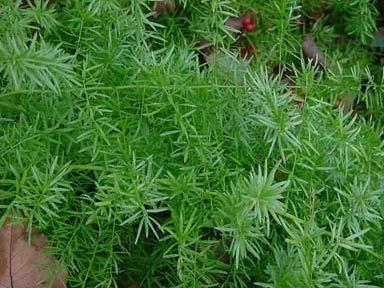
FAQ’s about growing Asparagus Mayura?
1. How to maintain for asparagus plants?
Caring for asparagus plants consists of several important steps
1. Watering
2. Fertilization
3. Mulch
4.wedge control
5. Harvest
6. Pest Control
2. What are the uses of the asparagus plant?
The asparagus plant has many uses, including food and medicine:
1. Use in cooking
2. Medical Use
3. Nutritional value
4.Flavor
3. Can I grow asparagus at home?
Yes, you can grow asparagus at home, but this requires paying attention to the needs of the plant and providing a good environment. Here are some tips for growing asparagus indoors:
1. Choose the right variety
2. Provide adequate light
3. Use a large container
4. Use a good potting mix specifically designed for planting.
5. Water regularly
4. What is the best pot for growing asparagus?
When choosing a pot for growing asparagus, it is important to choose a container large enough to accommodate the plant's deep root system and provide sufficient water. Here are some tips for choosing the best pot for growing asparagus:
1. Size
2. Material
3. Drain
4. Weight
5. Color
5. Where to buy asparagus plants
You can purchase asparagus plants from a variety of places, including:
1. Local Garden Centers and Nurseries
2. Online stores
3. Specialty Plant Catalogs
4. Local Farmers Market
5. Garden Shows and Plant Sales
6. Friends and family
